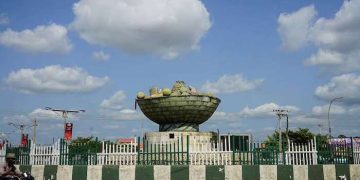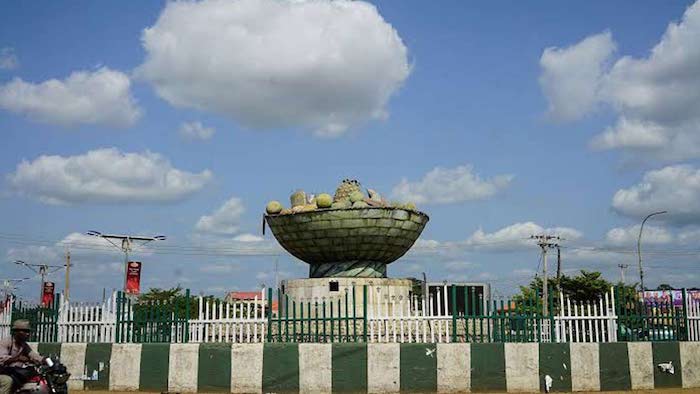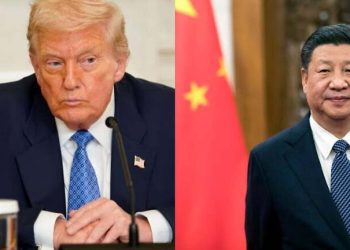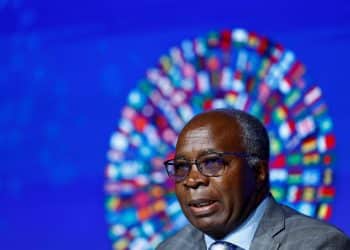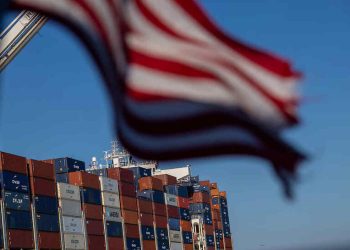As of mid-2025, Nigeria’s most recent comprehensive economic ranking still relies on the BudgIT State of States Report 2022, which provides GDP estimates for 2021 published in late 2022. Although official data beyond 2022 isn’t yet publicly released, multiple credible sources have reaffirmed the following rankings which continue to hold in early 2025.
For clarity: Lagos State leads by a wide margin with GDP at around ₦41.17 trillion (≈ $102 billion), while the next nine states each hover between ₦7–₦6 trillion. [Source: Business Day]
Economic Powerhouses: Nigeria’s Richest States
1. Lagos State – GDP: ₦41.17trillion (~$102billion)
Lagos remains the undisputed economic capital of Nigeria. Its dominance is anchored in a highly diversified economy: finance (home to major banks and the Nigerian Stock Exchange), trade (handling over 80% of national imports/exports via Apapa and Tin Can Island ports), real estate, and a booming tech sector. Startups, Nollywood, and entertainment also contribute to its rising GDP. This economic diversity makes Lagos responsible for nearly 20% of national GDP.
Per capita GDP stands at approximately $6,614, one of the highest in the country.
2. Rivers State – GDP: ₦7.96 trillion (~$19.7 billion)
Rivers anchors Nigeria’s oil and gas industry. Hosting multinational oil firms in Port Harcourt, the state contributes over 60% of the country’s crude oil output. Economically, it benefits from major petrochemical industries, maritime trade via Bonny River, and solid mineral deposits like silica and clay.
Although its total GDP is far smaller than Lagos, Rivers’ economy remains pivotal to national revenue and export earnings.
3. Akwa Ibom – GDP: ₦7.77 trillion (~$19.25 billion)
This oil-rich state rivals Rivers economically. Its wealth stems primarily from oil and gas, supplemented increasingly by agriculture (cassava, palm oil), coastal tourism, and emerging industrial investments. Recent state-led infrastructure projects are diversifying revenue beyond hydrocarbons.
Read Also: 2025: Top 10 Most Expensive State to live in Nigeria
4. Imo State – GDP: ₦7.68 trillion (~$19.02 billion)
Imo stands out for combining oil production with robust agriculture and growing small-scale manufacturing. Owerri, the state capital, serves as a commercial and investment hub in the Southeast, benefiting from increased entrepreneurship and local industrial estates.
5. Delta State – GDP: ₦6.19 trillion (~$15.33 billion)
Delta’s economy is built on oil (among Nigeria’s top producers) and bolstered by solid minerals clay, limestone, silica used in glass, ceramics, and construction industries. The state has impressively low extreme poverty (~3%) and pushes for a broader industrial diversification strategy.
Emerging in the Top 10: States 6-10
Here’s how positions 6 through 10 stack up, with rising industries and slower but steady economic growth:
| Rank | State | GDP (₦ trillion) | GDP (US$ billion) | Key Sectors |
| 6 | Anambra | ₦5.14 | ~$12.73 | Trade, manufacturing, real estate |
| 7 | Ondo | ₦5.10 | ~$12.63 | Bitumen, cocoa, agriculture, mining |
| 8 | Ogun | ₦5.03 | ~$12.46 | Manufacturing, agribusiness, logistics |
| 9 | Bayelsa | ₦4.68 | ~$11.47 | Oil production, emerging services |
| 10 | Niger | ₦4.58 | ~$11.34 | Agriculture, mining, hydroelectricity |
These states combine resource-backed economies such as Ondo’s bitumen and Ogun’s industrial estates with fast-growing commercial networks in the case of Anambra.
Why Lagos Still Leads in 2025
Despite much regional growth, Lagos retains a commanding lead. Its economic clout stems from:
- Massive port and trading infrastructure
- Industrial diversity spanning tech, finance, entertainment, real estate, and commerce
- High urbanization, drawing investments and talent
Unlike others, Lagos’s economy doesn’t rely heavily on oil. Instead, it thrives on services, creativity, and innovation.
Per Capita GDP: Who Truly Benefits?
Per capita GDP helps assess average productivity or income:
- Lagos: ~$6,614 – highest in Nigeria
- Bayelsa: ~$4,355 – despite smaller population, oil wealth elevates its ranking
- Imo: ~$2,996, Akwa Ibom: ~$2,962, Ondo: ~$2,326, Delta: ~$2,306
States like Kano and Benue, despite moderate total GDP, have much lower per-capita figures (~$674 and ~$1,585 respectively), indicating higher population burdens relative to economic output.
Development Beyond GDP: Limitations and Landscape Challenges
GDP alone doesn’t capture quality-of-life factors. Many northern and central states lag behind in human development indicators such as HDI, literacy, healthcare, and sanitation even when economic output climbs.
For instance, Sokoto and Benue rely heavily on agriculture but lack industrial diversification or infrastructure investment, which limits gains in human welfare despite rising agricultural output.
What to Expect Going Forward (2025 and Beyond)
Although 2025 data is still forthcoming, analysts and recent trends suggest:
- Lagos retains dominance, powered by its entrepreneurial ecosystem and continued infrastructure growth.
- Second-tier states continue moderate gains, especially Anambra, Ogun, and Kano, which expand manufacturing and trade beyond traditional sectors.
- Resource-rich states like Delta, Akwa Ibom, and Rivers may face volatility tied to oil markets but efforts to diversify (tourism, agriculture, manufacturing) could soften shocks.
FAQs
Q: Why don’t we have 2023 or 2024 GDP data yet?
Publicly available comprehensive data is based on the BudgIT “State of States” report of 2022. Full 2023-24 state GDP data is expected later in 2025.
Q: Can rankings change significantly?
Modest shifts are possible (e.g., Anambra or Ogun gaining ground), but Lagos’s dominance is unlikely to be overtaken soon.
Q: Why include per capita if GDP counts?
Per-capita figures demonstrate how much economic output is shared per person offering insight into living standards beyond raw totals.
Conclusion
As of 2024 and early 2025 estimates, the economic landscape of Nigeria is clearly led by Lagos, followed by oil-rich South-South and Southeast states. However, states with commercial vigor like Anambra, Ogun, Kano are quickly closing gaps by forging diverse economic pathways.
Understanding this ranking is not just about numbers, it helps reveal where investment is going, which states are evolving beyond oil, and which regions may soon become new economic pillars.
